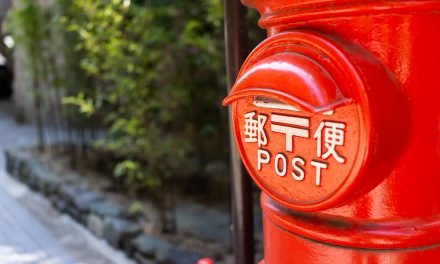
Japan Post starts life a step ahead of rivals
Private players won't likely be impressed with its makeover. The Asahi Shimbun Japan Post has only been in business since Tuesday and is well in the process of emulating private sector practices. But private delivery firms are hardly likely to welcome a leaner, meaner rival that also happens to be a public corporation
Private companies wishing to enter the potentially lucrative market for mail delivery can expect to be tied down by numerous restrictions that do not apply to Japan Post. And they will not be able to expect the same tax breaks granted to the entity, which is tasked with providing mail services and operating the nation's postal savings and life insurance plansThe situation is certain to be a headache for Japan Post President Masaharu Ikuta and his senior executives, who are already under the gun to turn a profit. Postal operations in fiscal 2002, which ended last month, were projected to have lost money for its predecessor, the Postal Services Agency
One such initiative is the so-called Toyota Project at the post office in Koshigaya, Saitama Prefecture. Seven advisers from Toyota Motor Corp. are sharing the automaker's renowned expertise in efficiency by analyzing the post office's operations. They are reviewing every aspect of the outlet, from working hours and utilization of office space through to letter sorting and mail storage
Japan Post plans to apply the findings from Koshigaya to its operations nationwide
The corporation is also coming up with new products and services. These include a uniform, 500-yen small parcel delivery service, as well as personalized postage stamps on which a photograph of the individual customer appears
Japan Post aims to make a cumulative profit of more than 50 billion yen on postal services in its first four years of operation-even though Ikuta, who served as chairman of Mitsui O.S.K. Lines Ltd. until Monday, is on record as calling the target a little ambitious
For the time being, at least, Japan Post will be able to pursue that target free of any competition, as there seems little likelihood of any other players entering the nationwide mail delivery business
The government has set strict conditions for private firms hoping to do so. Any company wanting to offer a general letter and postcard delivery service must first have at least 100,000 mailboxes across the country
Since the government began accepting applications Tuesday for private sector mail operations, it has received none for such comprehensive delivery services
It has only received applications from five firms wanting to offer delivery of large packages or express mail services within a given local area. Sokuhai Co., Bike Kyubin Co. and its subsidiaries Q-Cargo and Q-Post, all based in Tokyo, and Toukai Messenger Bb Inc. of Nagoya plan to launch their respective services as early as June
Home delivery service Yamato Transport Co., on the other hand, will be unable to expand its delivery of unsolicited mail to individuals because of the restrictions
"Japan Post is competing in a separate arena from that of private sector companies," a senior executive at Yamato Transport said
State guarantees backing the postal savings and life insurance systems, meanwhile, could cause the diversion of even more money from the private financial sector as customers flock to Japan Post, which is already the world's largest financial organization
Japan Post's status as a public corporation also has a downside for the company, however
For example, its employees are still public servants. Observers say this could hold up any restructuring of the entity along private sector lines
The government's publicly stated commitment to maintain a universal level of postal services nationwide, moreover, will make it difficult for Japan Post to eliminate some local post offices, no matter how unprofitable












